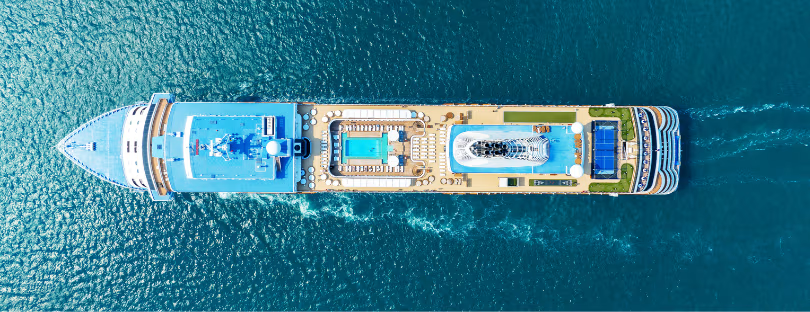
Norwegian Cruise Line to Abandon Plastic Water Bottles
When the Norwegian Encore, the newest ship from Norwegian Cruise Line, launches in November, it will carry no plastic water bottles to offer guests.
The 4,000-passenger ship will instead carry Just Water, with a carton made mostly of paper, and a cap made of sugar cane. The company aims to switch its entire fleet over to the more sustainable drinking water option by the beginning of 2020, an effort that it says will eliminate five million single-use plastic bottles per year.
“We’ve established a goal to eliminate single-use plastics across the fleet, which is a substantial undertaking,” Andy Stuart, the chief executive of Norwegian Cruise Line, said. “The Just Water container goes as far as technology allows today in eliminating anything not renewable or recyclable in a container that will store water.”
The announcement by Norwegian, the third-largest cruise company, comes amid a flurry of new sustainability announcements in the travel industry as it and concerned groups — such as Prince Harry’s newly formed initiative, Travalyst — respond to pressure points that range from disaster recovery in the aftermath of massive hurricanes and increased wildfires to “flight-shaming” of those consumers who travel by plane, requiring a large carbon-emissions footprint.
Leading new initiatives on sustainable travel, the World Travel & Tourism Council, which represents the industry’s private sector globally, called on Tuesday for climate-neutrality by 2050 at its Climate Summit in New York City.
The announcement outlined a new program called 0.S.C.A.R.S. to encourage its members — a broad spectrum of travel and tourism operators that include airports, airlines, hotels and tour and cruise companies — to adopt or accelerate sustainability programs and share best practices. (The “0” in the acronym is actually a zero, for carbon neutrality goals; the balance stands for “support” of climate strategies; “change,” or do research; “act,” or implement strategies; “recognition” of those doing effective work; and “share,” for collaboration).

“We want to be part of the solution, and this is our chance to move faster and contribute,” she said, noting the size of the travel and tourism industry, which accounts for a little more than 10 percent of global gross domestic product and one in 10 jobs globally.
From a consumer standpoint, O.S.C.A.R.S. aims to establish standards for sustainability that travelers can understand, in the way that the star system used by hotels indicates quality. Within a year, the W.T.T.C. plans to establish a turtle logo that a member can use to indicate it has met basic sustainable goals, with future higher levels, based on performance, to come.
“The consumer is confused because there are so many certifications,” Ms. Guevara said, noting sustainability certifications by groups like the Rainforest Alliance and EarthCheck. The council’s proposed qualification, she added, will give travelers “some assurance of a basic level of sustainable practices.”
While the pivot to sustainability may seem slow in response to climate alarms, some travel operators have reported progress in setting and achieving climate goals. Dallas-Fort Worth International Airport, for example, received carbon-neutral status by Airport Carbon Accreditation, an independent assessor, this year for its progress, including cutting CO2 per-passenger emissions by 83 percent since 2010 and using wind power for 100 percent of its electricity.
Hyatt Hotels claims it has exceeded its 2020 Environmental Sustainability Vision to reduce energy use and greenhouse gas emissions by 25 percent compared to 2006. It plans to set new goals next year.
Throughout its nearly 6,000 hotels, Hilton said it has reduced energy consumption 22 percent, carbon emissions 30 percent, water use 22 percent and waste going into landfills by 32 percent since 2008.
“In many ways, we are in a golden age of travel,” said Chris Nassetta, the chief executive of Hilton, citing the growth of travel globally. “Together as an industry, if we are not thoughtful, my belief is that we will damage our opportunity to pursue our great future and to take advantage of this golden age of travel. I look at this as an imperative for the industry that we work to deliver on a commitment to ensure sustainable growth.”
Environmental promises by cruise lines, however, have plenty of skeptics who point to Princess Cruise Lines, which was fined $20 million in June for violating the terms of its probation on a $40 million penalty for illegal dumping. (Small cruise lines are moving quickest to ease their impact; Norway-based expedition cruise line Hurtigruten, for example, launched the first hybrid-powered cruise ship this year and Lindblad Expeditions went carbon-neutral this year).








